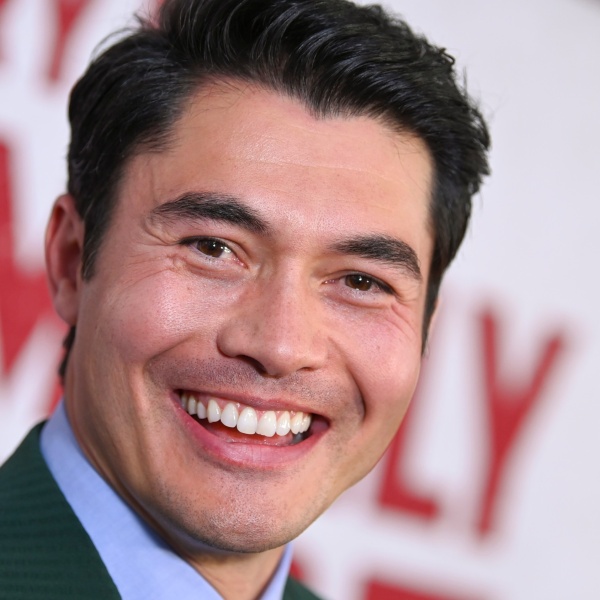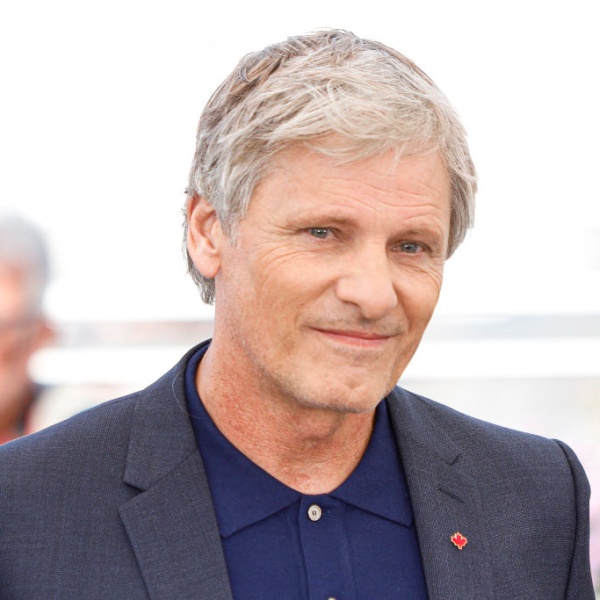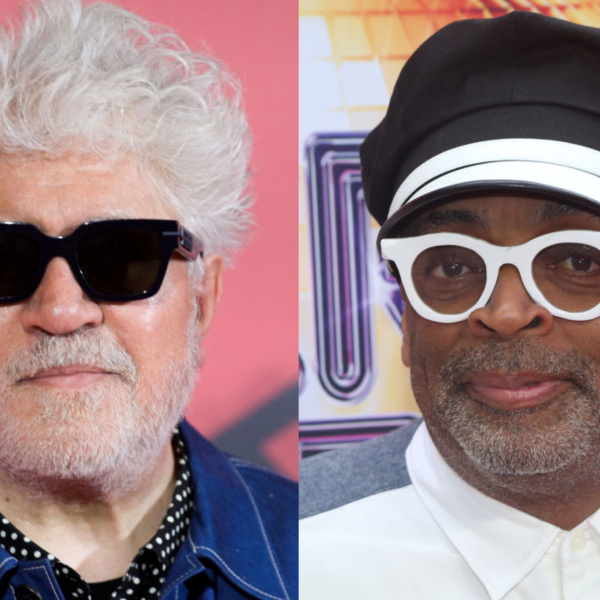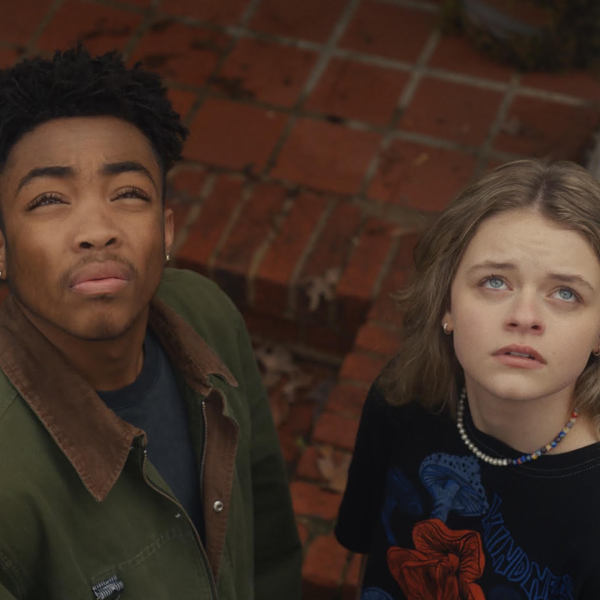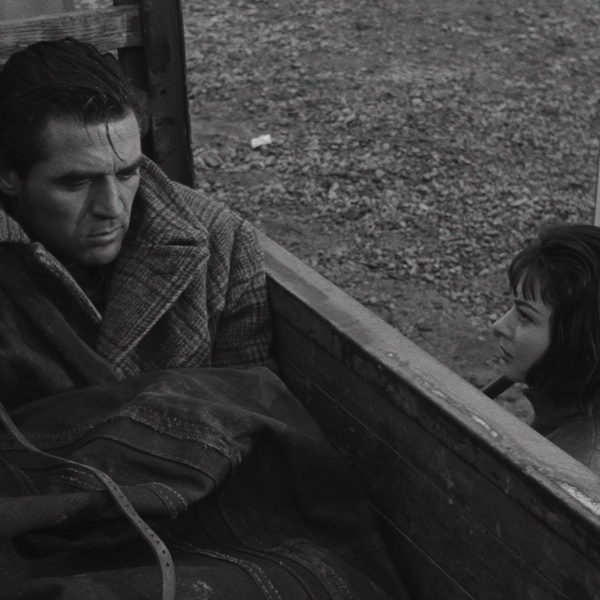Also Reveals ‘Star Wars’-Assisted Birth Of Australia’s Blue Tongue Films Collective

While watching the bizarrely confrontational “Hesher,” opening this Friday in limited release and starring an electric Joseph Gordon-Levitt (alongside Natalie Portman and Rainn Wilson), you might think to yourself — who the hell made this thing?
Well, that would be co-writer/director Spencer Susser, who makes his feature debut with “Hesher” after directing music videos, commercials, and crafting the acclaimed zombie short film “I Love Sarah Jane,” which starred a then-little-known Mia Wasikowska before she blew up with Tim Burton‘s “Alice In Wonderland.” In this interview, conducted at this year’s SXSW Film Festival in Austin, Texas, Susser took us through the project’s genesis, why he thinks auditions are weird, how he accidentally got into Sundance, and how an influential young Australian film collective was inadvertently put together by George Lucas.
The Playlist: Where did this project come from?
Susser: Well, since I was sixteen I wanted to make movies. And I started making commercials and music videos and I just kept wanting to make a film and hoping that a script would show up at my door and I’d say “This is the one!” But that never happened. So I felt like, the only way to do that was to write one. I sat down and started writing and didn’t really know what I was going to write or where it was going to go, but it just kind of went in this direction. I had experienced a loss when I was young, so I started to write about the idea of loss, really, and the further I got into it the more I didn’t want to make a depressing movie about grief. So the idea of introducing this crazy character makes it way more exciting to watch. He’s a liability – you don’t know what he’s going to do or what he’s going to say.
Can you talk about the formation of the Hesher character?
A lot of his backstory was based on a character I had known when I was young. First and foremost, Hesher is a complicated person and character and, it’s funny, I spent so much time figuring out who he was and, in a lot of ways, the opposite of what you would think a guy who looks like that, is. I always feel that, in a way, Hesher is the smartest guy in the room. You look at him and think, “That guy’s an idiot.” But he doesn’t say much, he listens to everything, and he gets what he wants out of every situation, since he talks when he needs to.
Was it a hard balancing act in terms of what you put forth and what you hold back with his character?
Yeah, and Hesher talks in metaphors, almost everything he says has a double meaning. But for me, he represents a lot of things. First and foremost he’s a complicated character, but he kind of represents death in a lot of ways. He’s this horrible, scary thing that shows up at this family’s door and moves into their house, uninvited, and he’s not going anywhere, and they can’t get rid of him – just like the idea of death. And once they learn how to function with him there, he kind of steps out of the way. He also represents life in a lot of ways, he points out some very simple things that we take for granted everyday.
Until someone else recognizes his presence, he could be some kind of phantom in the boy’s imagination.
It’s interesting to me that some people think that he is in the boy’s imagination. I don’t mind that. Because maybe he is. For me he’s there. I didn’t do anything tricky, to suggest he’s not. There’s one thing where he throws the marker through the window, the kid goes to pick it up and he’s gone, but Hesher just steps away. There’s nothing tricky about it.
How did you craft the screenplay, and how was working with David Michod (who wrote and directed last year’s critically acclaimed Australian crime drama “Animal Kingdom”)?
I had worked on the script for a while before I brought David on. Finally when we started to work together, it was a really great collaboration where it was like 99% of the writing I did with David talking. It was just this long discussion where we talked about ideas. It was like this weird therapy session and I would take notes. And we’d talk about it. It was such a healthy way to work because when you’re writing by yourself it’s like “Oh cool,” and you have this idea and go off on this tangent. But when you’re working with someone you have to defend your idea. It kind of feels like you’re pushing each other further.
Did he push you structurally? “Animal Kingdom” is plot-heavy and this is so much looser.
Not really. If anything I was pushing a little more plot stuff. “Animal Kingdom” is very much that – everything leads to the next thing, and this is not. This is about a boy dealing with death and what that feels like. We all deal with loss, and you don’t think too much about how it affects the people that have left behind. This was about that feeling. It feels like getting your ass kicked anyway you look.
Can you talk about casting the film?
When I was writing I always thought about Natalie being in the film but I also thought, there’s no way. I couldn’t help but see her. And she was the first person I sent the script to. I sent her the script and the short film I had made a few years ago and she really responded to them and she wanted to produce the movie, which was so awesome. She was really the reason I got to make the movie. She got behind me and was so supportive and kept telling everybody, “Trust this guy!” But then, with Hesher, it was so hard because it was so specific. I didn’t know who it was. I wanted it to be an unknown. Like you meet Hesher and think, “That’s Hesher!” Like you meet Luke Skywalker and think, “That’s him!” So the idea of someone that you recognize playing him didn’t work for me or the movie. “Oh that’s so-and-so dressed up” doesn’t work. When I started meeting actors I didn’t want to do auditions because that’s so weird. You spend so long writing a script, crafting these characters, and someone reads it and they say, “Here’s my take on it!” And you say “Not quite.” I didn’t want someone’s take, I didn’t want so-and-so’s version of Hesher. So instead of doing a typical audition, what I’d do was, I’d get in a room with one of the actors and I wanted them to audition me as much as I needed to audition them. I needed someone to trust me and go on this crazy journey with me. So Joe was someone who I got in the room with and after about ten minutes, I thought, “Holy shit, this guy is a fucking amazing actor.” And once I earned his trust it was this amazing collaboration where we would push each other and get to this really great place. He’s so brave. To go to the real places that aren’t comfortable – I don’t know how to do that, and I don’t want to do that. But that they’re capable of that is amazing.
Can you talk about casting Piper Laurie? Were you a big “Carrie” fan?
Well, yeah, but all of her work – she’s one of the screen legends. I couldn’t believe that she wanted to be part of the movie. But she was amazing and such a pro and really understood the script. This is a weird story, on the surface, Hesher says some pretty rough stuff, and you have to look past that. But not everybody does – “Oh, he says ‘fuck,’ not for me.” But what is he really saying? What’s underneath that? But she totally got it. She was amazing.
The movie played Sundance last year. Was there additional editing that was done between then and now?
I didn’t finish the movie for Sundance, it just wasn’t ready for Sundance. The idea of playing at Sundance was amazing, but I wasn’t ready. I sent it in, and it got in, which was cool, but it was a very rough version of the movie. By the time it played there, it was still kind of a rough cut – I had no music, I had no color correction, I had no sound design. It was the most bare-bones version of the movie. It was great that it played and people responded to it, but then I got to actually finish the movie. When I’m editing, I don’t edit with music, because I try to get the emotion right without it, because sometimes with music you can use it as a crutch. So, in a way, I never got to that stage. I thought that if you can make it work, emotionally, without music, once you add music, it elevates it. There’s not a lot of music in the film and I feel like movies should earn music. So when it starts out there’s hardly anything and by the end there is kind of a score, but it really earns it.
So you’re part of an Australian film collective Blue-Tongue Films but you’re obviously American. Can you talk about what that was like?
In 2000, I worked on “Star Wars,” on ‘Episode II,’ which was shot in Sydney. I did the “making-of” film, which was amazing. What I wanted to do was make a movie about the making of “Star Wars,” which wasn’t what it was. There are a bunch of little documentaries, like about the making of a costume, and they’re really cool, but I didn’t get to walk away with “Heart of Darkness.” But I had the best time. I had front-row seats to watch George Lucas make a movie, and I could go wherever I wanted and ask questions to whoever I wanted. It was the most incredible experience and I made some amazing friends – Nash Edgerton, who made “The Square” a couple of years ago, he was Ewan McGregor‘s stunt double and Nash’s brother, Joel, played Uncle Owen. So we just became friends. We had both been making stuff on our own – Nash had made a bunch of shorts, I had made a bunch of shorts – so we would also talk about films. I would make something and Nash would come hang out, or if Nash would make something, I would make suggestions. It became a collaborative relationship, and it was very organic. David was another friend of his, and Luke (Doolan) made “Miracle Fish,” which was nomination for an Oscar. This group of friends, hanging out, supporting each other, and that’s really where it started.
Do you feel out of place being the only American?
The sad thing is I feel more at home in Australia. I’m a wanna-be Australian. I love living there, I love the people. I love the film there, too. There’s not a lot of glamour attached to making films there. I love that no one really gives a shit, there, and because of it, it’s about the work. I really love working that way. You just get into it and make it work and because of it, the filmmakers there and the actors there are doing it for the right reasons. You do it because you love it and they turn out a lot of great work. To be an actor in Australia, you’re not going to make much money, nobody’s going to give a shit, so you better love it and you better be really good at it.
The short that broke you, “I Love Sarah Jane,” was being planned as a feature. Is that still happening?
Absolutely. That was always the plan. When I made it, I was in the middle of writing “Hesher.” And I was like “I can’t write anymore! I need to make stuff! I need to create!” Obviously you’re creating something when you’re writing but words on a page is different. I’m a very visual person and I like making stuff. So that was an idea I had for a feature and I figured the best way to pitch it was to just show people – here’s a slice of the world, the tone of the movie, what it feels like. It was really a pitch, and I’ve been working on it a lot. I’m writing now.
Would Mia Wasikowska come back for the feature?
We’ll see. I’m still writing. And the other thing is that’s just one of the stories. That’s the world, but it’s one story in a much bigger world.
Will it structurally be an anthology?
No, it’ll be a much bigger film, but in a contained way, as is ‘Sarah Jane.’ You have this big world, which is out there, but we don’t really get into it, and I don’t want to get into it because we’ve seen it a million times.
Would that be your next feature?
Hopefully. There are a couple of other things I’m working on, at the moment. I’m so excited to get back into it and make another film.
Are you and David going to collaborate again?
Maybe. We talk about it all the time. We’ll see if it actually happens.
“Hesher” opens this weekend in selected cities.
